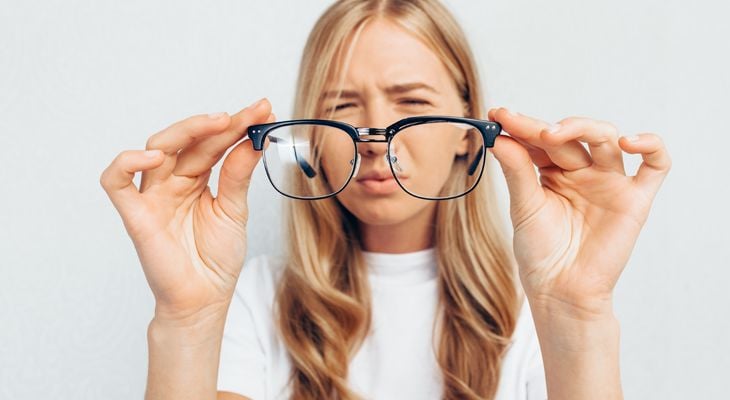
Most people classified as blind still retain some ability to see. They often have significantly impaired vision but can discern light, shapes, or other figures. Low vision refers to a class of visual impairment that cannot be corrected by glasses or contact lenses. A number of conditions may cause low vision, and actual visual abilities may vary by individual. A thorough assessment by an eye care provider can help you determine the severity of your visual impairment and identify potential avenues for treatment.
What Is Considered Low Vision?
A person is typically considered "legally blind" if he or she has vision that cannot be corrected to better than 20/200. The World Health Organization defines low vision by degree of impairment. Someone whose best corrected vision (in his or her best eye) is 20/70 to 20/160 has moderate low vision; vision in the 20/200 to 20/400 range is considered severe low vision; from 20/500 to 20/1,000 is profound low vision; and less than 20/1,000 is near total blindness. Only if someone cannot discern any light is he or she considered to be totally blind.
So what does this mean for you? If you have a visual condition that prevents your visual abilities to be fully corrected to near 20/20, you may have low vision. Significant loss of visual field, such as the inability to see in peripheral areas, is also considered low vision.
Causes of Low Vision
Low vision does not refer to a single etiology of vision loss. Rather, it is a cluster of conditions that significantly impair visual abilities. Common causes of low vision include macular degeneration, diabetic retinopathy, retinal detachment, cataracts, or glaucoma. Many of these conditions are associated with aging, and older adults are more likely to experience low vision. However, traumatic brain injury, eye injuries, and some genetic conditions can cause low vision at any age.
Diagnosis and Treatment
A thorough optometry exam is the best way to diagnose low vision. Your eye care provider will test your visual acuity, visual fields, and ability to detect color and contrast. Although by definition, low vision cannot be corrected by prescription glasses or surgery, some therapeutic options can help you continue activities of daily living. Magnifying devices, using large-print materials, and increasing contrast may facilitate everyday activities. Other aids, such as books-on-tape or talking watches may also be helpful. Discuss your visual impairment with your optometrist to come up with a plan to improve your quality of life despite low vision.